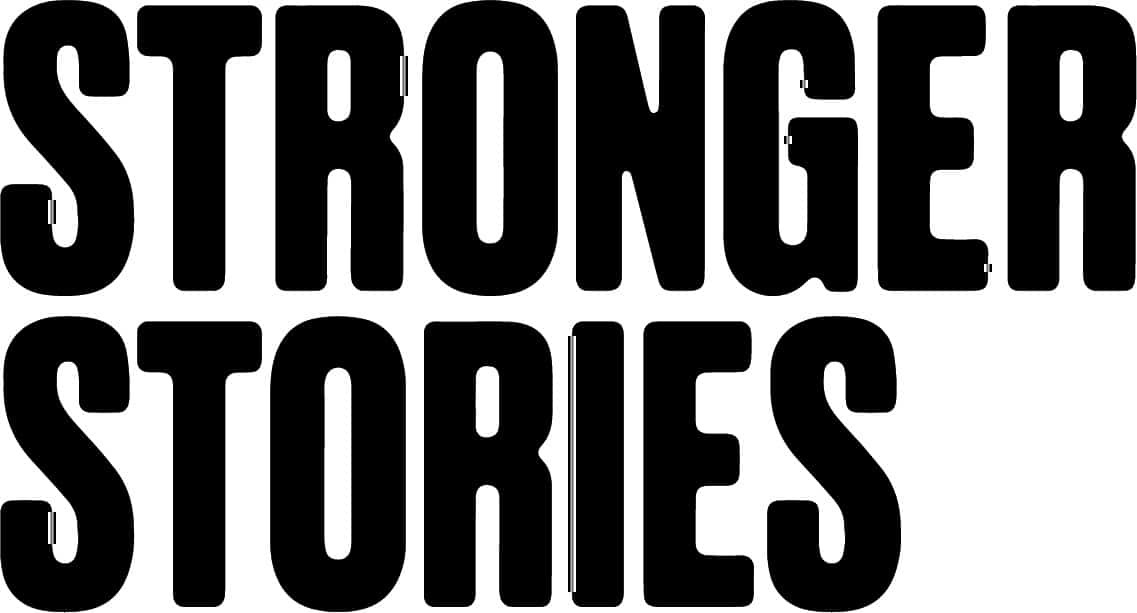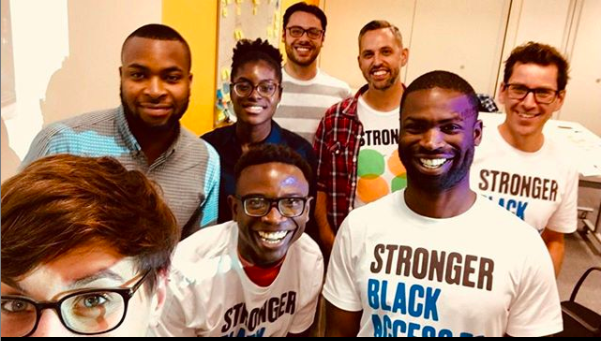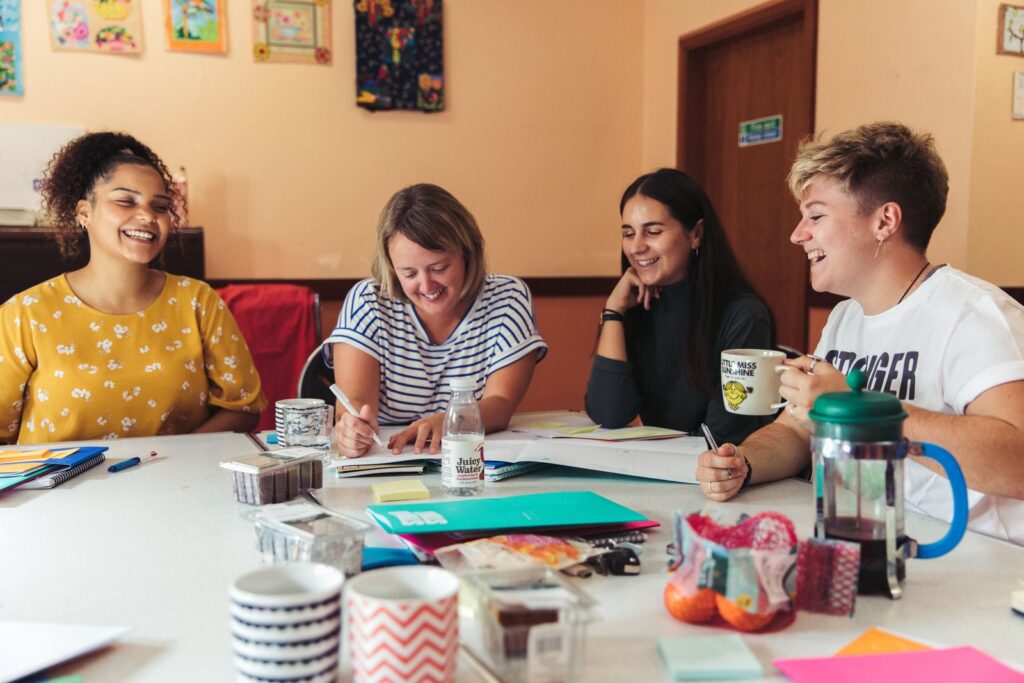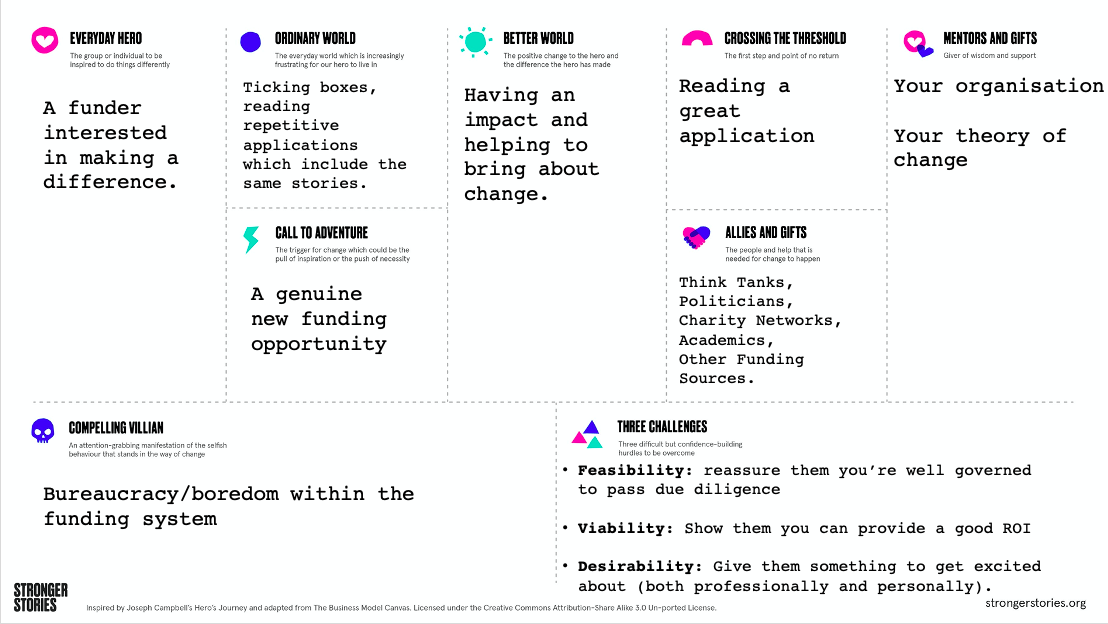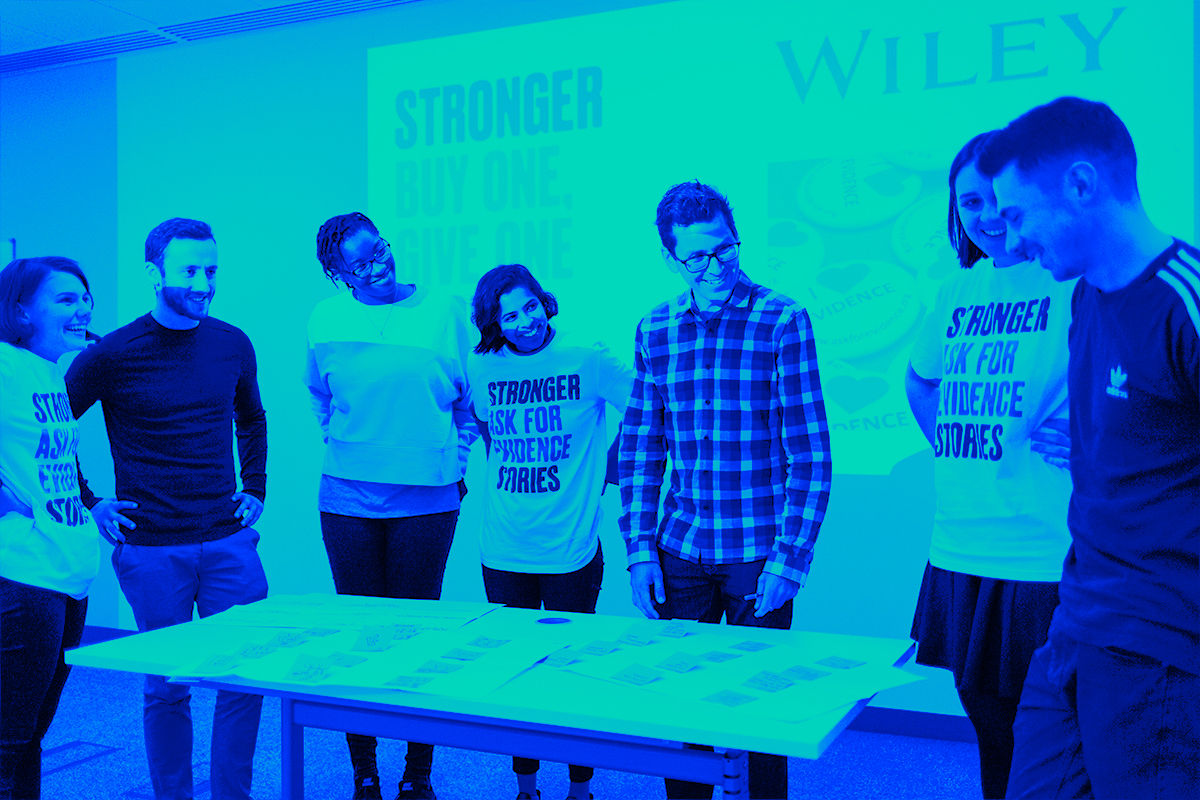
‘Give One’ Workshops to Help Good Ideas Grow
- Written by Leah Dennison
We’re not quite Robin Hood, but one of our biggest thrills in two years of Stronger Stories has been the growth of our pay it forward – Buy One Give One – campaign. It’s given small, cash-strapped community organisations the opportunity to have their own tailored workshop to help them tell better stories about the great work they do.
The campaign has been a success thanks to our many clients who understand that the gift of storytelling is one of the most powerful communications tools around, and have supported us by paying for an extra workshop which we then deliver to a deserving organisation.
We’ve seen the likes of Wagamama fund a session for Brighton based charity Rhythmix, who use music to transform the lives of some of the most vulnerable people in the South East. Wiley, the world’s largest scientific publisher has paid forward a workshop for London based charity Sense About Science, who campaign for the public interest in sound scientific evidence in public life and policy.
In total, our Buy One Give One campaign has meant we’ve been able to help 32 different organisations and cohorts who represent 396 different good ideas across our 7 impact areas. A big thanks to all the good people in some brilliant businesses that have made this possible.
Over the last two years, we’ve noticed some common themes emerge from the story-making sessions we run. Irrespective of sector or resources, these issues seem to be pervasive within cause-based organisations and the needs they have when it comes to story making and telling.
So what have we – and the organisations we work with – learnt?
1. It’s rare, but vital, to build your story together.
Low capacity and low resources are common pressures for third-sector organisations, so taking a day out of an always hectic schedule to spend a day with your team, on rather than in the business, is mostly seen as a luxury.
In reality, it’s a vital process. The chance to break down and re-assemble your organisation’s story not only helps teams remember why they joined the shared mission in the first place, but also helps align the legacy story with the current strategic direction.
We find that the strategic elements of our Story Building Process are often invaluable to the wider organisational strategy. But actually, again and again, we hear that one of the most valuable aspects of the workshops are more holistic; the chance to bring together all members of a team, from CEOs and trustees, through to part-time volunteers and new starters, to build their story together.
This inside-out process is the only way to create an authentic, shared story that everyone who makes up the organisation can buy into and external audiences can truly believe in.
2. Funders are human too.
Our Story Canvas tool reveals the heroes and villains that play a part in fighting for positive social change.
From siloed thinking and austerity, through to fake news and pay disparity – you name it, we’ve seen it positioned as an organisational villain.
But there is one specific character that is often villainised unjustly: funders.
We all know that the third sector relies on funding to survive, so we find it baffling that organisations are often so keen to bite the hand that feeds. After years of conversations around flipcharts and whiteboards, we’ve come to realise the problem.
No one ever puts themselves in the funder’s shoes. This short exercise in empathy, usually reveals to participants that funders are not in fact individuals that wake up every morning thinking “How many funding applications can I say no to today?”, but are compassionate people, also on a mission to make the world a better place.
We first mapped out this funders canvas to illustrate just that to the Big Local Connects cohort. And to further cement where funders should sit in their stories. Not as villains, but as key allies that help them on their journey.
3. One story can fit all…
…. it just matters how you tell it.
Creating a unified story for your organisation can seem like a redundant process, teams are used to speaking to trustees in one way, volunteers and beneficiaries in another – usually via a sprawling web of tweets, phone calls, strategy docs and meeting minutes.
The breadth of audiences that one team has to communicate with can be staggering, yet finding a framework that speaks to all of them is possible
We just find that teams need to be given the freedom to tell it in their own voice.
Our workshops see teams build shared elements of their story together, from the ‘call to adventure’ that helped spark the start of something, to the ‘crossing the threshold’ moment when they finally had no reason to turn back. These elements can be tuned up or down for different conversations.
Think about Romeo and Juliet, the same Shakespearian plot we all know, suddenly transformed in the hands of Baz Luhrmann, or brought to life in all its finger-clicking glory in West Side Story, or Disney’s child-friendly animated hit, Gnomeo and Juliette. It’s exactly the same principle for organisational stories. You can use the same plot – but tell it differently to different audiences.
When speaking to a volunteer, you might start with the end of your story, ‘the better world’ that you are creating for your service users. A funder might be more interested in the allies you have as part of your team – it’s just about dialling up the shared aspects of your story for different audiences.
This diverse alignment means that your team can share a story, but one that is told in each of their team’s unique voice. Meaning everyone can be in the right time, in the right place, with the right story.
4. Storytelling is a skill.
And like all skills, the good news is that it can be learnt.
Small teams often end up with one person managing five different roles under one unrepresentative job title.
Quite often marketing and communications often falls into that murky area of ‘all hands-on deck’
Nurturing confident storytellers who feel equipped with the tools and skills they need is a hard task when no-one in the organisation comes from a marcomms background.
We find that going through a story-building process, together, gives everyone a renewed sense of ownership over the story and their role within it. The framework aspect of the tool also means it can be laid over different assets – whether those be external or internal.
When looking at their stories, it’s often very common for teams to go back over old assets – blogposts, videos, funding bids and campaigns with a more focused eye. Nine times out of ten there are already reams of content that have been created but aren’t being used to their full potential. A content audit, taken through the lens of the framework, often resurrects blogposts lost between web builds and half-finished campaign strategies that just need that final push to come to life. Revealing that the story-skills have always been there, they just needed to benefit from a communal renewal, with a reinvigorated team who now feel confident to call themselves storytellers.
5. The story is never done
We don’t need to dwell on the hurdles that small organisations face in achieving their mission of making positive change happen – evolving funding landscapes, activism fatigue, never having enough capacity, not to mention global pandemics…
The point is, change is hard.
Stories need to constantly update, adapt and move with the changing times and needs of our world.
There is huge strength found in bringing together cross-sector organisations to share know-how and resources and to truly listen to each other in a peer-learning environment.
Working with so many inspiring groups, setting out to make real change happen, is a huge privilege – being able to meet, and help change-makers who are leaving the world in a better place than they found it is a priceless experience.
Full list of beneficiaries:
- Blockbuilders
- Outlandish
- Rewilding Sussex
- Goodmoney
- Sense About Science
- Stay Up Late
- Rhythmix
- The Commitment
- CharityComms
- AudioActive
- Losing Control
- Thames Ward Community Project
- CHANGE People
- The Real Junkfood Project Brighton
- Ashoka
- Hope for the Future
- Police Spies Out Of Lives
- Extinction Rebellion
- Big Local
- Carbon Removal Network
- East London Connect
- Environmental Funders Network
- The Children’s Society
- O N C A
- Calouste Gulbenkian Foundation
- Ecolibrium
- Pharmacosmos
- Pesticide Action Network
- Global Action Plan
- Scottish Environmental Fundraising Forum
- Scottish Communities Climate Action Network
Share:
Grow Your Good Idea Faster
New ideas are precious. Win support by learning how to create and tell a stronger story – sign up to join for free.

Related posts
Business as Unusual: Anita Roddick and The Body Shop
Anita Roddick, activist and founder of The Body Shop, was someone who married her products with politics. Her life and...
The Best of Storytelling: This Girl Can
It’s easy to forget how far advertising has come. In a few decades, we’ve moved from slogans like ‘Blow in her...
What heroes and villains across cultures can teach us
From caped crimefighters to the megalomaniac mastermind, societies around the world have always used storytelling to...
Learn from the strongest stories about change
We’re working hard to walk the talk.
We’re proud to be have been awarded The Blueprint and B Corp status in recognition of our work towards creating a better world.

